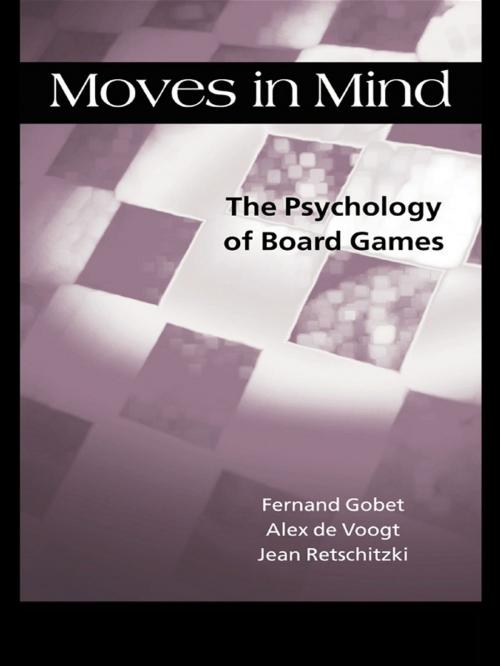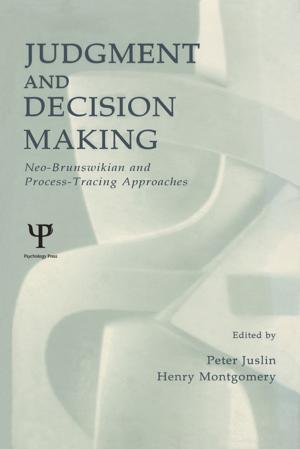Moves in Mind
The Psychology of Board Games
Nonfiction, Health & Well Being, Psychology, Cognitive Psychology| Author: | Fernand Gobet, Jean Retschitzki, Alex de Voogt | ISBN: | 9781135425128 |
| Publisher: | Taylor and Francis | Publication: | August 5, 2004 |
| Imprint: | Psychology Press | Language: | English |
| Author: | Fernand Gobet, Jean Retschitzki, Alex de Voogt |
| ISBN: | 9781135425128 |
| Publisher: | Taylor and Francis |
| Publication: | August 5, 2004 |
| Imprint: | Psychology Press |
| Language: | English |
Board games have long fascinated as mirrors of intelligence, skill, cunning, and wisdom. While board games have been the topic of many scientific studies, and have been studied for more than a century by psychologists, there was until now no single volume summarizing psychological research into board games. This book, which is the first systematic study of psychology and board games, covers topics such as perception, memory, problem solving and decision making, development, intelligence, emotions, motivation, education, and neuroscience. It also briefly summarizes current research in artificial intelligence aiming at developing computers playing board games, and critically discusses how current theories of expertise fare with board games. Finally, it shows that the information provided by board game research, both data and theories, have a wider relevance for the understanding of human psychology in general.
Board games have long fascinated as mirrors of intelligence, skill, cunning, and wisdom. While board games have been the topic of many scientific studies, and have been studied for more than a century by psychologists, there was until now no single volume summarizing psychological research into board games. This book, which is the first systematic study of psychology and board games, covers topics such as perception, memory, problem solving and decision making, development, intelligence, emotions, motivation, education, and neuroscience. It also briefly summarizes current research in artificial intelligence aiming at developing computers playing board games, and critically discusses how current theories of expertise fare with board games. Finally, it shows that the information provided by board game research, both data and theories, have a wider relevance for the understanding of human psychology in general.















